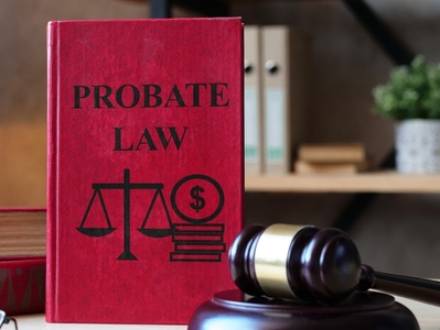Recent Blog Posts
How Can I Establish Paternity if the Father Is Unwilling?
 Many children have the privilege of growing up with both of their parents. Even if a child’s parents are divorced, having two involved parents can be very beneficial for the child’s emotional well-being. Similarly, in many families, parents who are not married to each other understand the benefits of allowing their child to have a meaningful connection with each parent.
Many children have the privilege of growing up with both of their parents. Even if a child’s parents are divorced, having two involved parents can be very beneficial for the child’s emotional well-being. Similarly, in many families, parents who are not married to each other understand the benefits of allowing their child to have a meaningful connection with each parent.
While married couples are automatically recognized as a baby’s parents at birth, an unmarried father’s relationship with his child needs to be legally established so that his paternity is officially recognized. Otherwise, he has no legal parental rights or responsibilities to the child. When the mother wants the father to establish his paternity, but he is unwilling to acknowledge his role in the child’s life, she can pursue legal action. If you are in this situation, contact a knowledgeable Hillside, IL family law attorney to learn more about your options.
How Can You Keep Your Home Out of Probate Court in Illinois?
 If you own a home in Illinois, ensuring that ownership of it will transfer smoothly to whomever you choose without getting tangled up in probate should be a top priority for you. A probate case in Illinois typically takes between one and two years to complete, with complex or contested estates at the longer end of that estimate. The probate process is also public, which means details about your estate are accessible to anyone with an interest. During the probate process, your loved ones may not have access to the assets in your estate, leading to financial difficulties.
If you own a home in Illinois, ensuring that ownership of it will transfer smoothly to whomever you choose without getting tangled up in probate should be a top priority for you. A probate case in Illinois typically takes between one and two years to complete, with complex or contested estates at the longer end of that estimate. The probate process is also public, which means details about your estate are accessible to anyone with an interest. During the probate process, your loved ones may not have access to the assets in your estate, leading to financial difficulties.
Fortunately, there are three legal options available to you that can enable your beneficiaries to avoid the costly and time-consuming public probate process for real estate. When you have an experienced Oak Park, IL probate attorney from the Law Office of Vincent C. Machroli, P.C. helping you prepare your estate plan, you can rest easy knowing your estate plan fully protects your loved ones. The following are the 3 ways that you can be sure that ownership of your home passes to your family members, or to whomever you choose, without the necessity of going through probate
How to Keep Your Home When Foreclosure Seems Inevitable
 As of March, 2024, the state of Illinois had the highest home foreclosure rate in the United States, with foreclosures affecting one in every 2,548 homes. In the same month, the number of homes with foreclosure filings across the entire nation was 32,878 – a drop of 1 percent from the previous month, and down 10 percent from the same point the previous year. The prospect of losing your home is, understandably, terrifying. Our homes are often a haven from a world that can be tough to navigate at times. If you have children, the thought of losing your home is even more untenable.
As of March, 2024, the state of Illinois had the highest home foreclosure rate in the United States, with foreclosures affecting one in every 2,548 homes. In the same month, the number of homes with foreclosure filings across the entire nation was 32,878 – a drop of 1 percent from the previous month, and down 10 percent from the same point the previous year. The prospect of losing your home is, understandably, terrifying. Our homes are often a haven from a world that can be tough to navigate at times. If you have children, the thought of losing your home is even more untenable.
The rules and laws surrounding foreclosure vary significantly from one state to the next. Foreclosure is a specific type of civil litigation. In some states, foreclosure can happen quickly, while the process is fairly lengthy in others. If you are behind on your mortgage payments and fear your home is about to be foreclosed on, your first priority should be to contact an Oak Park, IL foreclosure defense attorney from the Law Office of Vincent C. Machroli, P.C..
Changes in Illinois Estate Planning and Probate Laws
 If you are contemplating having an estate plan prepared, or if you are dealing with probate for a loved one, it is important that you be fully informed about several recent changes in the law that might affect you and your loved ones in connection with those subjects. Estate planning allows you to make provisions for those you care about, including the distribution of assets, and naming a person to make decisions on your behalf in the event you become incapacitated.
If you are contemplating having an estate plan prepared, or if you are dealing with probate for a loved one, it is important that you be fully informed about several recent changes in the law that might affect you and your loved ones in connection with those subjects. Estate planning allows you to make provisions for those you care about, including the distribution of assets, and naming a person to make decisions on your behalf in the event you become incapacitated.
Probate is the legal process of administering your will, paying any outstanding debts, and distributing the remaining assets to those you have named in your will or trust. This means that any law passed regarding estate planning also affects probate. It is always a good idea to consult with a knowledgeable Oak Park, IL, probate attorney who can guide you through the process, and/ or help you plan for your own probate in the future. The following are some of the recent probate changes in the state of Illinois.
Why Would a Guardian Be Appointed for a Child in Illinois?
 In addition to divorce, child custody, asset division, spousal support and child support, guardianship matters fall under the category of family law. Usually, only a child’s parents have the authority to make decisions regarding the care of a child, but sometimes, a parent is unable or unwilling to make those decisions, and so a guardian must be appointed by a family court judge.
In addition to divorce, child custody, asset division, spousal support and child support, guardianship matters fall under the category of family law. Usually, only a child’s parents have the authority to make decisions regarding the care of a child, but sometimes, a parent is unable or unwilling to make those decisions, and so a guardian must be appointed by a family court judge.
A guardian, who is often a family member, takes on the duties and responsibilities of a child’s parents. Different types of guardianship exist, depending on the child’s specific needs. It is important to note that parental rights are not terminated when a guardian is appointed, and that a parent may file a petition seeking the discharge of the guardian.
If you have been appointed guardian of a child, or if you are the parent of a child who has had a guardian appointed, you may have questions, so it can be very beneficial to speak to an Oak Park, IL family law attorney from the Law Office of Vincent C. Machroli, P.C.. Attorney Vincent C. Machroli has been helping Illinois families with regard to guardianship matters since 1988.
What is an Emergency Motion for Parental Responsibilities?
 When serious disputes arise about the allocation of parental responsibilities, the response of Illinois courts can be swift. With the goal of protecting the best interests of the child, if an emergency motion suggests a child is at risk, the courts will virtually always act quickly. A dispute may arise between parents during times when temporary custody orders are in effect or after the divorce, when final allocations of parental responsibilities have been determined.
When serious disputes arise about the allocation of parental responsibilities, the response of Illinois courts can be swift. With the goal of protecting the best interests of the child, if an emergency motion suggests a child is at risk, the courts will virtually always act quickly. A dispute may arise between parents during times when temporary custody orders are in effect or after the divorce, when final allocations of parental responsibilities have been determined.
When an emergency motion is filed, it is because one of the child’s parents has serious worries about the child’s immediate safety. If you are a parent who has such concerns, speak to your Oak Park, IL child custody attorney from the Law Office of Vincent C. Machroli, P.C. to discuss the best way to proceed. If your attorney feels an emergency motion is warranted, he will likely set a court date quickly.
What You Should Know About Emergency Custody Motions
An emergency motion for parental responsibilities is only granted when one parent asks the court for an immediate response regarding an issue with the other parent that threatens the safety of the child, and the court agrees. The parenting plan may also be changed temporarily to award sole custody of the child to the parent filing the emergency motion, but this should not be considered a final decision.
How Could the New Illinois Trust Code Affect a "Silent Trust"?
 On January 1, 2020, a new Illinois Trust Code replaced the then-existing Illinois Trusts and Trustees Act. The new Code introduced various changes which affected beneficiaries’ rights, trust preparation and administration, and the obligations of trust fiduciaries. With certain limited exceptions, the new Illinois Trust Code applies to all trusts created before, on or after the effective date.
On January 1, 2020, a new Illinois Trust Code replaced the then-existing Illinois Trusts and Trustees Act. The new Code introduced various changes which affected beneficiaries’ rights, trust preparation and administration, and the obligations of trust fiduciaries. With certain limited exceptions, the new Illinois Trust Code applies to all trusts created before, on or after the effective date.
These changes meant that all Illinois trust documents currently in place should be reviewed to make sure that they are in compliance with the new Code provisions, while all new Illinois trusts must be drafted to comply with the Code. If you have a "silent trust" in place at the present time, or are considering having one prepared, it is important that you speak to the knowledgeable Hillside, IL trust attorney from Law Office of Vincent C. Machroli, P.C..
How Will a "Gray Divorce" Affect My Retirement Plans?

Getting a divorce can be a challenging process at any age, but when you choose to end your marriage later in your life, you may face a unique set of financial concerns. In what is known as a "gray divorce", you will need to consider how the division of your marital property and other decisions you make will impact your retirement plans. An experienced divorce attorney can help you address the sometimes fairly complicated legal and financial issues that you may encounter in a "gray divorce", and can advise you on the best steps to take to protect your future.
Financial Concerns in a "Gray Divorce"
"Gray divorce" refers to the increasing trend of couples aged 50 and older choosing to end their marriages. If you are in this demographic, and you are either approaching or are already in your retirement, the financial implications of divorce can be significant. Financial concerns that you may need to address include:
When Can Out-of-Court Negotiations Be Used in Consumer Disputes?
 Disputes between businesses and consumers are common, and while civil litigation can be one option for addressing these issues, lawsuits can be time-consuming and costly. Out-of-court negotiations provide an alternative way to resolve these kinds of issues, while possibly helping preserve important relationships.
Disputes between businesses and consumers are common, and while civil litigation can be one option for addressing these issues, lawsuits can be time-consuming and costly. Out-of-court negotiations provide an alternative way to resolve these kinds of issues, while possibly helping preserve important relationships.
Understanding when and how negotiations can be used is crucial for both businesses and consumers. An experienced Illinois alternative dispute resolution attorney can provide guidance on how to negotiate civil disputes, while protecting your interests.
Types of Business/Consumer Disputes
Some common types of disputes include:
Product Defects and Warranty Issues
When a consumer buys a product that does not work as advertised or is defective, they may seek to recover their losses. Disputes may also arise regarding whether a product is covered under a warranty, and/or if repairs or replacements must be provided to the consumer.
Can I Try to Settle All the Issues in My Divorce Case Through Out-of- Court Negotiations?
 While the process of ending your marriage through a divorce can be challenging, it is best to try to avoid a contentious court battle. By negotiating a settlement outside the courtroom, you can save time and reduce stress, and you will be more likely to achieve an outcome that will benefit both you and your spouse. To determine the best ways to resolve divorce-related issues as amicably as possible, you can work with an experienced divorce attorney who can advise you as to your legal rights and options, as well as assist in negotiating a settlement that will meet your needs.
While the process of ending your marriage through a divorce can be challenging, it is best to try to avoid a contentious court battle. By negotiating a settlement outside the courtroom, you can save time and reduce stress, and you will be more likely to achieve an outcome that will benefit both you and your spouse. To determine the best ways to resolve divorce-related issues as amicably as possible, you can work with an experienced divorce attorney who can advise you as to your legal rights and options, as well as assist in negotiating a settlement that will meet your needs.
Issues to Address in a Divorce Settlement
As you work to complete the divorce process, you will need to address various legal issues, including:

















